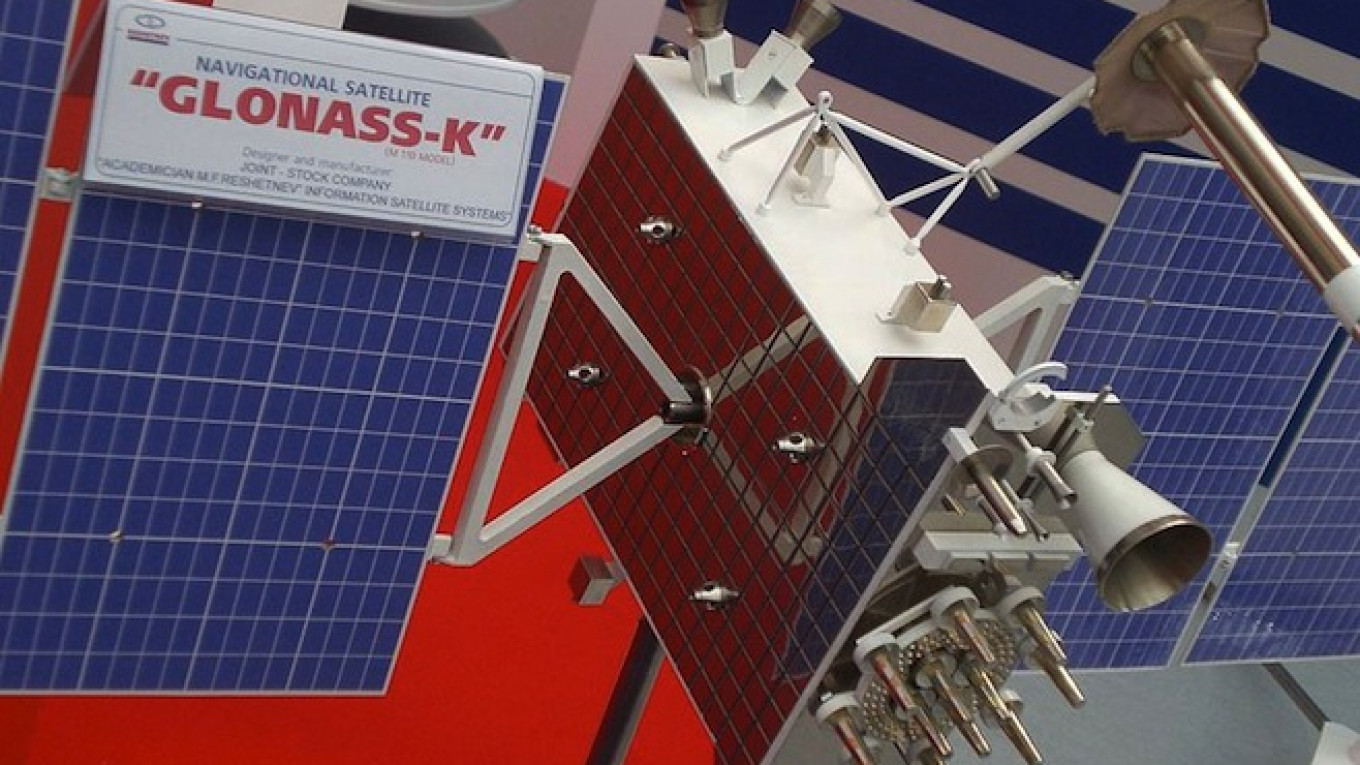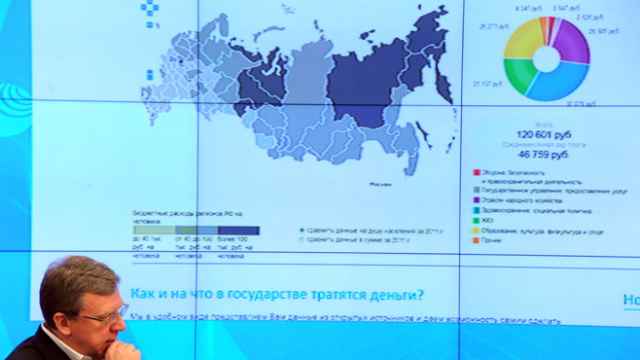President Vladimir Putin has ordered the government to fund the development of the Era-Glonass emergency response system to its completion and “not give up halfway,” by handing the responsibility off to private firms, state news agency TASS reported Wednesday.
Russia's Glonass, the network of navigation satellites that Era-Glonass operates on, is a high priority national security project for Putin and the Russian government. Like Europe and China, which are also pursuing their own satellite navigation systems, Russia views U.S. dominance in the field of satellite navigation to be a military threat and missed commercial opportunity.
The government has already sunk around 4 billion rubles ($100 million) into the development of the Era-Glonass system, which provides response information to Russia's emergency services and works within the larger architecture of the Glonass satellite navigation system, Russia's answer to the U.S.-owned and operated GPS system.
The Russian government has long backed Era-Glonass's development, but now finds itself at the mercy of a shrinking economy and larger budgetary concerns, including promises to modernize its military and raise state salaries.
As state funds dwindle, Deputy Finance Minister Andrei Ivanov notified the Transportation Ministry on Sept. 25 that it needs to investigate attracting alternative sources of capital, a Kommersant source said.
But Putin, speaking before a meeting of the State Council and Cabinet of Ministers on Wednesday, said the system is too important to abandon halfway.
“I am aware of all the budget constraints,” Putin said. “Preparing the federal budget for the next two years is difficult and complicated work, but billions [of rubles] have already been spent [on Era-Glonass] and we cannot abandon it halfway.”
Meanwhile, Kommersant reported earlier on Wednesday that the Finance Ministry has proposed that Russia's largest telecoms operators — MTS, VimpelCom, MegaFon and Rostelecom — in conjunction with Rostec, the government's technology investment corporation, provide additional capital for commercializing Era-Glonass's emergency response infrastructure. The task is currently managed by the Glonass joint-stock company, according to a source close to the ministry, Kommersant reported.
The Finance Ministry is propping up Glonass with 1.95 billion rubles ($50 million) from 2014 to 2017, but expects the company's revenue to reach 5 billion rubles ($125 million) by 2018, at which point Glonass should be self-sustaining.
Twelve Russian companies are already involved in non-profit partnerships with Glonass, including the major telecoms operators and Russian Internet giant Yandex, Kommersant reported. Several of them have gone out of pocket to develop the emergency response system.
None of the companies wished to comment on the Finance Ministry's proposal, Kommersant reported.
A Message from The Moscow Times:
Dear readers,
We are facing unprecedented challenges. Russia's Prosecutor General's Office has designated The Moscow Times as an "undesirable" organization, criminalizing our work and putting our staff at risk of prosecution. This follows our earlier unjust labeling as a "foreign agent."
These actions are direct attempts to silence independent journalism in Russia. The authorities claim our work "discredits the decisions of the Russian leadership." We see things differently: we strive to provide accurate, unbiased reporting on Russia.
We, the journalists of The Moscow Times, refuse to be silenced. But to continue our work, we need your help.
Your support, no matter how small, makes a world of difference. If you can, please support us monthly starting from just $2. It's quick to set up, and every contribution makes a significant impact.
By supporting The Moscow Times, you're defending open, independent journalism in the face of repression. Thank you for standing with us.
Remind me later.






